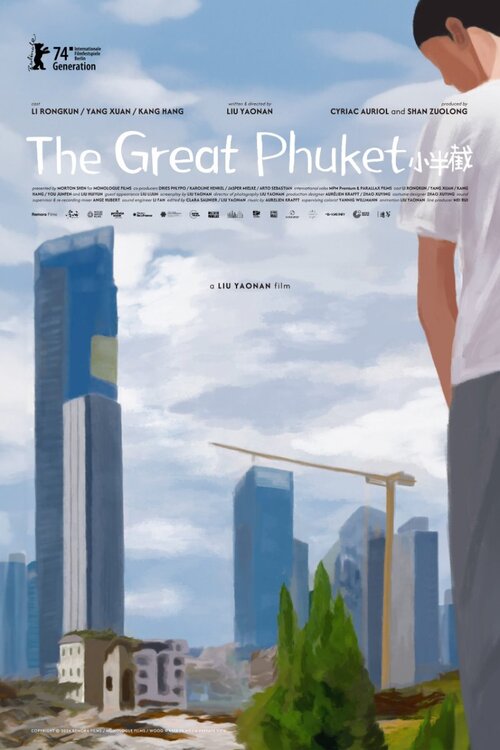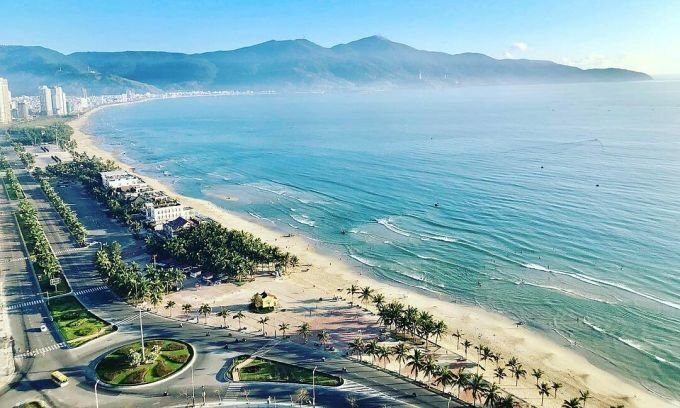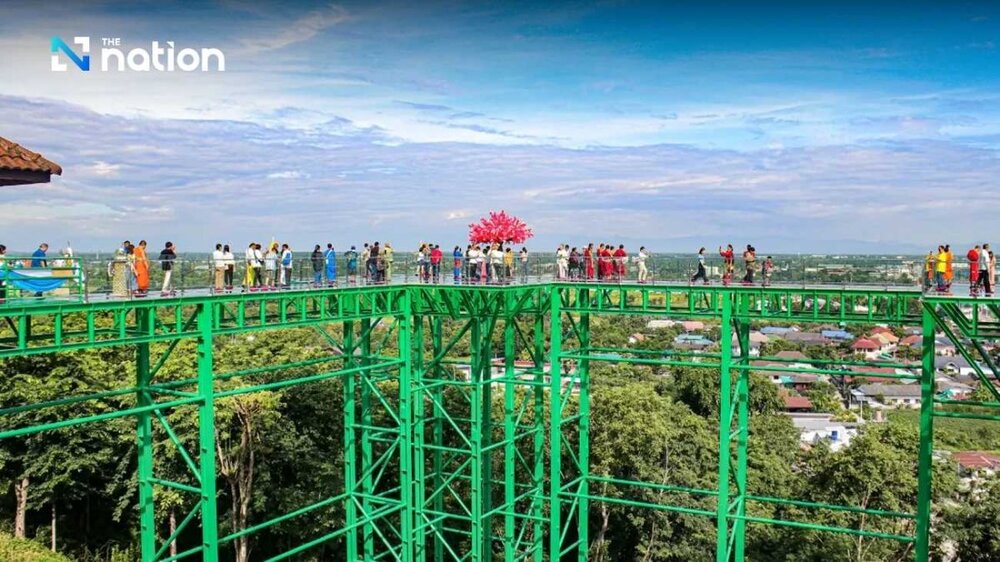
reader
Members-
Posts
10,274 -
Joined
-
Last visited
-
Days Won
262
Everything posted by reader
-
Consider the situation in in Pattaya where unsolicited physical advances by ladyboys on the street frequently (as reported in local media) result in snatching of gold chains, watches and other possessions from passers by oblivious to the threat. If members are aware of that, they are in a better position not to become victims. This seems to be a specialty of the criminal element in the transgender community. I agree that any unsolicited physical advance is reason for concern but what gets reported are crimes by ladyboys. I have no control over that.
-
I call attention to crimes--among them murder--by specific transgender individuals as a service to members. Readers have a right to be aware of what's happening. That does not impugn transgenders who are not committing crimes. You're free to find that offensive but others, who could become potential victims, may well be thankful for the information. And in every case, I cite the source of the report.
-
Thailand PM faces ousting over controversial appointment
reader replied to reader's topic in The Beer Bar
From The Nation Pheu Thai nominates Thaksin’s daughter as its PM candidate The Pheu Thai Party’s executive board voted on Thursday to nominate former prime minister Thaksin Shinawatra’s daughter, Paetongtarn Shinawatra, as its candidate to become Thailand’s 31st prime minister. The board endorsed Pheu Thai leader Paetongtarn as PM candidate for the House to vote on Friday after its MPs voted earlier in the morning to nominate her instead of Chaikasem Nitisiri, Pheu Thai’s other PM candidate. Paetongtarn and Chaikasem are the two remaining Pheu Thai PM candidates after the Constitutional Court on Wednesday voted 5:4 to remove Srettha Thavisin as prime minister for lack of integrity. Pheu Thai sources said Thaksin favoured Chaikasem for the top post as the former attorney-general had helped the former prime minister a lot when he faced criminal cases. According to party sources, Pheu Thai convened a meeting of its MPs at Parliament on Thursday morning to have them endorse Chaikasem but the MPs chose Paetongtarn instead. Paetongtarn was chosen as a much younger and healthier candidate, while Chaikasem reportedly has health issues. Observers said the MPs feared that Chaikasem could face another Constitutional Court ruling regarding his integrity, as he was the attorney-general who had ordered public prosecutors to drop the bribery case against Pichit Chuenban. Before the Pheu Thai executive voted to endorse Paetongtarn as Pheu Thai’s PM nominee, two key coalition partners – the Bhumjaithai and Untied Thai Nation Party – announced their loyalty to the Pheu Thai-led coalition. They said they would vote for Pheu Thai’s PM candidate on Friday as long as the candidate did not support amendment of Article 112. Chaikasem in the past had expressed support for amendment of the controversial lese majeste law. ====================== Thaksin tells Pheu Thai to abandon digital wallet scheme Pheu Thai patriarch Thaksin Shinawatra has told the ruling party to abandon its digital wallet flagship policy. Party sources said Thaksin gave the order during a meeting with Pheu Thai core members at his Chan Song Lar residence on Wednesday evening, hours after Srettha Thavisin was removed as prime minister by the Constitutional Court. The sources said former PM Thaksin told his daughter, Pheu Thai leader Paetongtarn Shinawatra, to drop the controversial 450-billion-baht scheme for digital handouts of 10,000 baht. He explained to her that the scheme should be halted as the economy was weak, a source said. The scheme is meant to stimulate spending but has faced heavy criticism for the vast government budget involved. After dithering over how to finance the scheme, the government eventually reduced the cost from 500 billion to 450 billion and spread the burden over two budget years – 2024 and 2025. Caretaker deputy finance minister Julapun Amornvivat changed his stance on the scheme after Wednesday’s meeting at Thaksin’s house. Earlier, Julapun had said the project would continue no matter what happened to Srettha. -
He went home with transgender woman he just met. What could possibly go wrong? Reminds me of tourists who display gold jewelry and get robbed? What could possibly go wrong?
-
From The Thaiger A businessman was robbed by a transgender woman he met at a hotel, who then attempted to sell his stolen vehicle on social media. The police set up a sting operation but the suspect managed to flee. Around 1am today, August 15, a 42 year old businessman, referred to as Gorn, visited the Nonthaburi City Police Station to identify his black Suzuki Swift. The vehicle had been recovered by police outside a convenience store on Soi 20 Mithuna in the Huai Khwang district of Bangkok. The car had been stolen by a 28 year old transgender woman named Pink, on the evening of August 13, as confirmed by CCTV footage. The footage showed Pink leaving the room at a love hotel at 8.14pm and talking on the phone outside. By 8.30pm, the black Suzuki Swift belonging to Gorn was seen driving away from the hotel. Additional CCTV footage captured the car leaving a nearby road in Nonthaburi. Gor reported the incident to the Nonthaburi City Police yesterday. He had met Pink at a hotel on a road in Nonthaburi’s Mueang district around noon on August 13. After spending time together, Gornfell into a deep sleep and woke up around 3am the next day to find his black Suzuki Swift, an iPhone 12 Pro Max, a Xiaomi phone, and a Tag Heuer watch missing. Hotel staff informed Gorn that a man had driven away with the woman he had brought to the hotel, which prompted him to file a police report. Police,led by Officer Tharathip Pengkham, reviewed the hotel’s CCTV footage and saw Pink in a white outfit making a phone call at 8.19pm. The footage confirmed that the car left soon after. Upon further investigation, police discovered that Pink had posted images of the stolen car for sale on social media. They arranged to meet Pink at a convenience store on Soi 20 Mithuna in Bangkok, planning to arrest her during the transaction. However, upon arrival, they found only the car with the keys still in the ignition. It is believed that Pink became aware of the sting and abandoned the car. Gorn, the victim, recounted his acquaintance with Pink, who had undergone gender reassignment surgery. They had arranged to meet at the hotel around noon, where they ate and talked before spending the night together. Gorn fell into a deep sleep and woke up at 3am to find his car and other valuables missing. Fortunately, police were able to recover his vehicle, reported KhaoSod.
-
From Pattaya News The Pattaya Film Festival is back for its second year from August 21st-25th, featuring over 20 films from around the world. The festival will feature screenings both in theaters and at outdoor venues to promote diverse cultural experiences for all audiences, with free admission to every film. The event is a joint collaboration between Pattaya City, the Special Tourist Area Development Authority, and the Film Archive of the Ministry of Culture. The festival also offers other activities, such as discussions with international directors, masterclasses by filmmakers from Portugal and Malaysia, and a documentary pitch workshop for Thai documentary filmmakers. Screenings will be held at SF Cinema Marina, Major Cineplex Avenue, and outdoor venues at Lan Pho Public Park and Naklua Market. The festival includes: International Competition: Showcasing high-quality films from emerging directors, including Last Shadow at First Light (Singapore), Gitling (Philippines), The Monk and the Gun (Bhutan), The Tenants (South Korea), Sea Sparkle (Denmark), and The Great Phuket (China). Winners will receive $5,000 and a trophy. Panorama: Featuring films that have gained acclaim at international festivals and classic films, such as Next Sohee, The Taste of Things, Ryuichi Sakamoto: Opus, Waltz with Bashir, My Sea Has Some Small Waves (with director Q&A), Not So Close Friends (with director Q&A), One For the Road, and classic Thai films Last Life in the Universe and Som Sris 422. Jury Showcase: Highlighting three films in honor of the festival’s jurors: Last Time I Saw Macao by Portuguese director João Pedro Rodrigues, Tiger Stripes by Malaysian director Amanda Nell Eu, and Thai film Morrison by Puttipong Arunpeng. Outdoor Screening: Featuring entertaining films such as The Undertaker and the latest action film Pattaya Heat at Lan Pho Public Park and Naklua Market.
-
From Bangkok Post The Thailand Convention and Exhibition Bureau (TCEB) organised the event "Thailand Announcement -- Unity in Action: Thailand's Next Steps in Equality" on Tuesday to celebrate the landmark passage of the Marriage Equality Bill, while also reaffirming the government's dedication to advancing gender equality in the country. Former prime minister Srettha Thavisin delivered a keynote speech titled "Towards Equality and Unity: Announcing Thailand's Advancements in Marriage Equality Legislation and Readiness to Host WorldPride," where he said the government aims to promote gender equality in the long term, ensuring an inclusive society for Thai LGBTQ+ individuals and people worldwide. Furthermore, the government is bolstering the tourism sector to support this agenda. The government wishes to reiterate its commitment to creating strategic partnerships across Asia through the establishment of the Asia Pride Alliance, fostering regional collaboration for LGBTQ+ rights, he said. "Thailand aims to advance the LGBTQ+ agenda and champion the pride community at both the regional and global levels," he added. He said Thailand will propose Phuket as the host city for the InterPride World Conference in 2025, adding this proposal shows the strong collaboration between people, communities, and the government, and marks a significant step towards the "Road to WorldPride 2030" campaign. Chiruit Isarangkun Na Ayuthaya, the TCEB president, said Thailand has upheld the rights of its Pride community. At the local level, the government is empowering communities through collaboration with InterPride member organisations and allied agencies. Regionally, it is positioning the kingdom as a leader in Asia's push for gender equality and diversity. Globally, it is promoting Thailand as a safe and welcoming destination for international events by highlighting its pride-friendly facilities and ongoing efforts to foster inclusivity. "We proudly reaffirm our readiness to bid for the InterPride World Conference in 2025. Additionally, we aspire to host WorldPride in 2030. "
-
You may be more in need of a blowjob than any member of forum. Gets the carbon out of the cylinders and may also improves your writing! 😀
-
From Business Insider John Walker's studio apartment in Chiang Mai, Thailand isn't much bigger than a hotel room, but it has everything he needs: air conditioning, basic kitchen appliances, and proximity to his favorite Mexican restaurant — all for less than $200 a month in rent. The 73-year-old moved to Thailand from Western Australia in 2019. A lifelong traveler, Walker liked the idea of living somewhere new, and was drawn to Chiang Mai's beautiful temples and mild climate when he first traveled there in the early 2010s. Walker now lives off his roughly $18,000 annual pension (AU$28,000), according to bank statements reviewed by Business Insider. And, because his expenses in Chiang Mai are so low, Walker said he is able to save about 40% of his income. Continues at https://www.msn.com/en-us/money/personalfinance/an-australian-boomer-retired-in-thailand-on-an-18-000-annual-pension-he-saves-almost-half-his-income-and-can-still-travel-the-world/ar-AA1oMoue
-
Will be looking for you 🙂
-
Many thanks for links. Will definitely put that on my short list on next trip.
-
From VN Express British newspaper The Daily Telegraph has named My Khe and Non Nuoc in the central city of Da Nang in a list of 50 best beaches on the planet. The two beaches are described "best for atmosphere", according to the newspaper. The 900-meter-long My Khe, which runs from the base of the Son Tra Peninsula to the Marble Mountains, is famous for its smooth white sand and warm waters all year round. It also offers a variety of adventure sports activities. Located in Ngu Hanh Son District, around eight kilometers from downtown Da Nang, Non Nuoc beach is five kilometers long and dotted with a series of luxury resorts. From the beach, tourists can easily conquer the Marble Mountains, a complex of network of caves, tunnels, towers and pagodas. In addition to two Vietnamese representatives, other beaches praised included Ipanema in Rio de Janeiro, Palm West Beach in Dubai and Playa de La Concha in Spain. The list was compiled by travel experts based on criteria such as wildlife, striking panoramic views, atmospheric areas with bustling beach bars and attractions, destinations with luxurious hotels, quiet remote corners, family-friendly stretches of sand and more. https://www.telegraph.co.uk/travel/destinations/best-beaches-in-the-world/
-
Thought JD Vance had a lock on that?
-
From Pattaya News A German tourist fell from a hotel in Pattaya after allegedly using cannabis and becoming paranoid. At 2:40 AM on August 14th, 2024, Pattaya police received a report of a foreign tourist falling from a luxury hotel, located on Soi 4, Pattaya Second Road, Nongprue sub-district, Banglamung district, Chonburi province. Police, The Pattaya News, and rescue volunteers immediately responded to the scene. Upon arrival, authorities found the foreign tourist, identified as 21-year-old German national Mr. Manuel Marc Norbert Bukow, lying in pain. Rescue workers provided initial first aid before transporting him to a hospital for urgent medical attention. According to Mr. Panya Suelek, 36, a hotel security guard who witnessed the incident, he heard loud noises and went to check. He then saw Mr. Bukow sitting on the awning at the back of the hotel and tried to call him. The tourist, who appeared agitated and frightened, got up and ran along the awning, which eventually broke, causing him to fall and get injured. The security guard then called for rescue services.
-
Thailand PM faces ousting over controversial appointment
reader replied to reader's topic in The Beer Bar
There are a host of well-known contenders for the job,, according to this AP article. BANGKOK (AP) — A court in Thailand on Wednesday removed Prime Minister Srettha Thavisin from office over an ethical violation, further shaking up Thai politics after the court-ordered dissolution of the main opposition party a week ago. The Constitutional Court ruled on a case involving Srettha's appointment of a Cabinet member who had been imprisoned in connection with an alleged attempt to bribe a court official. The court voted 5:4 against Srettha and the ruling removed him from office immediate The Cabinet will remain in place on a caretaker basis until Parliament approves a new prime minister. There is no time limit for Parliament to fill the position. The caretaker Cabinet could also dissolve Parliament and call a new election. The acting PM is expected to be Phumtham Wechayachai of the Pheu Thai party. Phumtham was first deputy prime minister and commerce minister under Srettha. If Parliament is given the task of choosing a new prime minister, it can select from a roster of candidates nominated for the post last year by the major political parties. The Pheu Thai Party, to which Srettha belongs, has two eligible candidates, including Paetongtarn Shinawatra, the daughter of former Prime Minister Thaksin Shinawatra. Another frontrunner would be Anutin Charnvirakul, head of the Bhumjaithai Party, which ran third in last year's election. He is currently a deputy prime minister and interior minister. Anuthin, a powerbroker in the vote-rich northeast whose family owns a major construction group, has served in both a military-backed government and the civilian one that it replaced. Also in the running would be two former senior military officers: Prayuth Chan-ocha, who served as prime minister for nine years after staging a coup in 2014, and Prawit Wongsuwan, who was one of Prayuth's deputy prime ministers. he acting PM is expected to be Phumtham Wechayachai of the Pheu Thai party. Phumtham was first deputy prime minister and commerce minister under Srettha. https://www.msn.com/en-us/news/world/thai-prime-minister-srettha-thavisin-removed-from-office-by-court-order-over-an-ethics-violation/ar-AA1oM5yu# -
-
Thank God you're gay! 🙂
-
It will take one satisfying encounter to change your mind.
-
From The Nation The northern province of Lamphun unveiled its latest tourist attraction on Saturday (August 10) – the Wat Doi Ti Skywalk – which offers panoramic views of mountain landmarks in Lamphun and Chiang Mai. Tourists visiting this glass-bottomed skywalk will be able to see the Si Kru Ba pagoda and Wat Phra Phutthabat Tak Pha, two of Lamphun’s iconic religious attractions from up top, provincial governor Suntitorn Yimlamai said after cutting the ribbon. They can also see Chiang Mai’s Doi Suthep and Doi Inthanon, the latter being the tallest mountain in Thailand at 2,600 metres above sea level. Near the skywalk on the mountaintop is a shrine to Kru Ba Sri Wichai, one of the most revered monks in Thailand that houses the largest statue of him in the kingdom, the governor added. Continues with photos https://www.nationthailand.com/news/general/40040525
-
From Bangkok Post Guest lecturers under fire for Move Forward dissolution ruling Student activists at Thammasat and Chulalongkorn universities have launched campaigns against two Constitutional Court judges who are also guest lecturers at their institutions. This follows the court's ruling last Wednesday, which led to the disbandment of the Move Forward Party (MFP). On Saturday, Thammasat University Student Council Rangsit Campus and the committee of students studying in the Faculty of Law posted an open letter on Facebook encouraging law students at Thammasat to sign a petition seeking to have Udom Rathamarit, a Constitutional Court judge, dismissed as a special lecturer. These student groups accused the judge of failing to set a good example and of embarrassing the law circle with an interpretation of the constitution in the Move Forward ruling that did not conform to his own teaching. The groups intend to submit the signatures to the dean of Thammasat's Faculty of Law on Wednesday. Continues at https://www.bangkokpost.com/thailand/politics/2845927/guest-lecturers-under-fire-for-move-forward-dissolution-ruling
-
Phuket Struggles with Overwhelming Tourism Growth From Thailand News Agency The once pristine island of Phuket is facing a growing crisis as its rapid tourism expansion outpaces infrastructure development. Congested roads are environmental degradation are threatening the island’s reputation as a premier tourist destination. Phuket’s main thoroughfare, Thepkrasattri Road, is notorious for its gridlock, causing significant inconvenience to both residents and visitors. This chronic traffic congestion, coupled with issues such as water shortages during the dry season and severe flooding during the rainy season, has led to widespread frustration. “If you come to Phuket, you’ll face flooding, drought, and traffic jams. Who will come? “said Adisak Akkasinthawangkul, an advisor to the Phuket Community Network. “It takes two to three hours to get anywhere. We, as citizens, demand a seamless public transportation system to accommodate the growing number of condominiums and other developments.” Suksit Suvarnditkul, President of the Southern Thailand Hotel Association, echoed these concerns, emphasizing the urgent need for infrastructure improvements. “Road and land transportation are major problems for Phuket,” he said. “To accommodate future tourism growth, we need to expedite projects like expressways and expand our port facilities to handle cruise ships. A new airport project must be accelerated to handle the projected increase in passenger traffic.” Despite Phuket’s continuous tourism growth, there are questions about whether this growth is directionless. Comparisons with Singapore with a similar land area, highlight the stark contrast in urban planning. Singapore’s “City in a Garden” concept has resulted in a highly livable environment with abundant green spaces with a tree density of 29.3%. In contrast, Phuket has experienced significant deforestation for new construction projects. Continues at https://tna.mcot.net/english-news-1404988
-
In a comprehensive talk at the Pattaya City Expats Club on July 31, Kevin Kirk delved into the intricate tapestry of Myanmar’s history, the ongoing conflicts, and the geopolitical chess game influencing the region’s future. Displaying a map of the area, he provided an overview of Myanmar’s geography and its strategic position between China, India, and Southeast Asia. Kevin traced Myanmar’s tumultuous journey from the colonial era to its current state, marked by internal strife and external interests. He detailed Myanmar’s colonial past, the Anglo-Burmese Wars, and the British East India Company’s role in shaping the country’s history.
-
Or 39 Underground in Saphan Kwai. Mostly local crowd but farangs are welcome.
-
Know that stairwell very well. Use to climb it almost daily when Nakarat Massage occupied third floor. Many happy memories. 🙂








